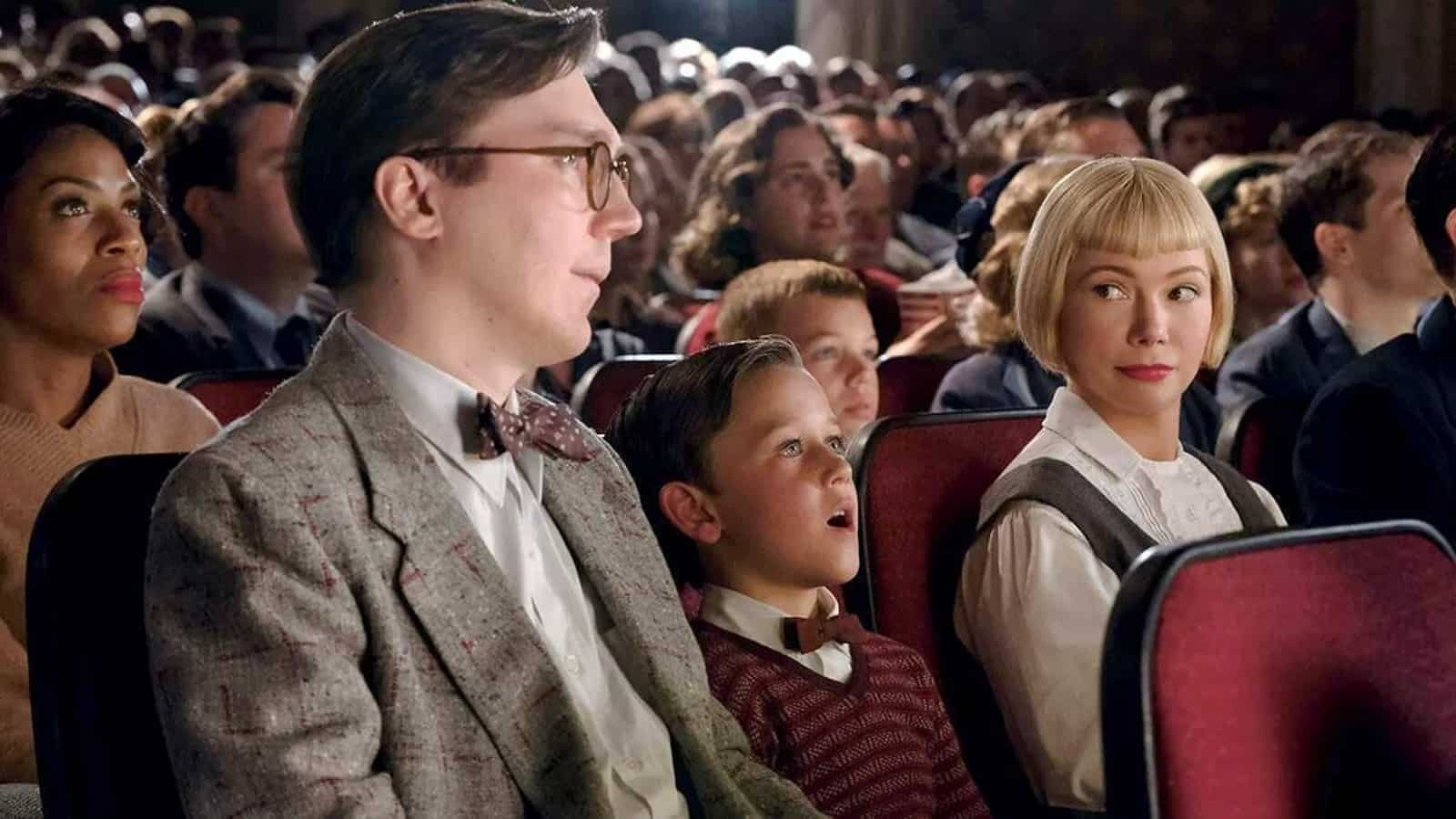The Fabelmans review: Steven Spielberg’s autobiographical drama is touching | Hollywood
Steven Spielberg’s The Fabelmans, I’d argue, is next impossible to entirely dismiss and not feel for. For any lover of the movies, Spielberg’s semi-autobiographical tale is too pure, personal, innocent and wholesome not to relate to and connect with. A movie about a young boy falling entirely in love with and becoming besotted by the big screen, who eventually decides to devote his life to it? Are you kidding me? I felt seen.
The year is 1952, the place is New Jersey. A young Sammy Fabelman (a fictional character based on Spielberg’s own childhood, here played by a sparkling Mateo Zoryan) is scared of walking into a movie theatre for the first time. He’s afraid of the idea of a large screen full of big, scary people and blaring sound. But his gentle parents – computer engineer Burt (Paul Dano) and pianist turned housewife Mitzi (Michelle Williams) – reassure their young son that there’s nothing to worry about. But Sammy wasn’t wrong to be afraid. What happens in that theatre will forever haunt him. Just not quite in the way he expected. Minutes into the screen flickering to life, Sammy is transfixed. The picture is Cecil B DeMille’s 1952 The Greatest Show On Earth. As Sammy is in awe of what’s unfolding before him, one scene, in particular, engulfs him entirely. It’s a lavishly staged train crash sequence (I love watching old movies and realising how impressive special effects and cinematic trickery in massive productions aren’t a recent phenomenon).
The sequence refuses to budge from Sammy’s subconscious. So much so that he’s possessed to ask his parents for a toy train set. But unlike most kids, Sammy doesn’t want to play with it. He wants to crash it and recreate that very same train derailment setpiece. His singular focus and repeated attempts to do just that pushes his mother to buy him a camera, so he can stage his very own locomotive collision and rewatch it as he pleases. And the rest, as they say, made history.
If The Fable Man is Steven Spielberg’s superhero name (I must admit, it took me an embarrassing amount of time to get the winking-at-us title), then The Fabelmans is his origin story. Over a massive 2.5-hour film, we follow Sammy’s coming-of-age journey from a young boy to his high school years to eventually landing his first job in a movie studio. A Boyhood-with-a-movie-camera-style sprawling coming-of-age tale packaged within a quietly volatile family drama. Speaking of his origins, it’s beautiful thought is it not? That Sammy’s father is a machine maker and his mother a musician? What is filmmaking if not the literal love child of artistry and engineering?
For me, The Fabelmans is at its most potent not when it examines the difficult family dynamics that come to define Sammy, but when it focuses on its birth-of-an-artist narrative and his relationship with moviemaking. Like when we see a young Sammy running around the house with his Super 8 camera, shooting delightfully imaginative skits and sketches with his sisters. Or shortly after when a now teenage Sammy (played by an earnest Gabriel LaBelle) shoots movies with his scout troop. But these are no longer cute home videos, but genuinely complex, ambitiously staged productions rife with shootouts and inventive shot-taking. Come for the budding, young filmmaker making big films with limited resources. Stay for a fantastic scene where Sammy struggles to brief one of his actors – a simple-minded jock – for an emotional sequence, until he eventually gets lost in his character, taps into real emotion and breaks down uncontrollably.
But these are sparkling makings-a-movie-maker moments that get lost in an uneven family saga, and the increasingly fraught marriage between Sammy’s parents. I particularly struggled with Michelle Williams’ performance as Sammy’s mother Mitzi. A free-spirited, idiosyncratic figure who seems fractured as a result of repressing her identity. I think it was the film examining what happens when an artist represses their art and identity, but here she comes off impulsive, bordering on, dare I say it, annoying. Perhaps it’s my limited mind, but I struggled to comprehend her frequent flights of fancy, such as when she falls into a trance-like state and bursts into dance during a family camping trip. Or in an earlier scene where she tries to drive her car headfirst into a tornado (an actual tornado) with her young children in the back seat.
But above all else, The Fabelmans had me thinking about biographical movies and their subjects. About where storytelling ends and context begins. Would we feel so strongly for this movie if we didn’t know it was the Steven Spielberg story? Would we be so invested in this boy’s journey if we didn’t know and love the destination he becomes? I suspect not. Devoid of that context, The Fabelman’s isn’t as invigorating.
That aside, where the film will no doubt stay with me are its ideas about the love of storytelling and what incites it. It’s a simple idea, but a powerful one. That the true magic of the movies isn’t what’s unfolding on the big screen but when you turn the camera around to the looks of awe and wonder on the faces of its audience.

